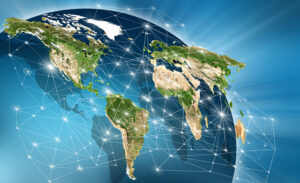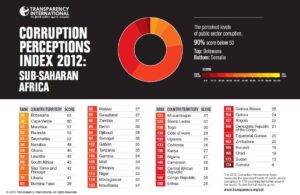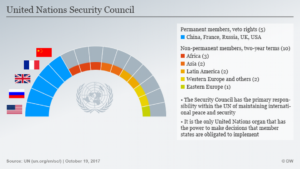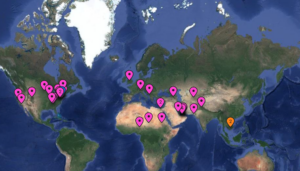
Critical scholars take a less positive analysis than liberal scholars when discussing globalization. In a condensed version, critical scholars attribute globalization to events such as imperialism, colonialism, capitalism, and the overall marginalization of minorities. Globalization was only able to be achieved by forcing their way into countries and taking advantage of people. On the flip side, you have liberal scholars, who have a more positive outlook on globalization, as they believe this was because of success within diplomacy and international organizations, which aided in creating interdependence. When taking a look at both of these perspectives, I believe that the liberal perspective is more persuasive.
I can understand the argument that the critical scholars give, however, I don’t believe through these events they could achieve globalization unless there was only one hegemonic state in the end. Even within colonization, there were many different states, which took part, all of which were battling for power. There was no other goal in mind other than trying to outdo one another. So, unless there was only one main power at the end there would not be global interdependence, solely based on this chain of events. I do believe that critical scholars give important information about events that helped to lead to globalization, however, they missed the connection that states needed to create interdependence. Liberal scholars help to bridge that, as they talk about how the states need to have succeeded within diplomacy, along with the successful use of international organizations. A perfect example of how both of these are needed because of the major division was after World War II, with the creation of the United Nations. After World War II, the UN helped to bring diplomates (delegates) from many states together to create long-term peace between states. After this continued diplomacy and other organizations such as the World Trade Organization were created to create and facilitate interactions between states. All of which created a world where most states can rely on each other for trade, aid, and allyship. Now, this opens a way for more cultural practices and migration of people between states. These factors are all needed to create interdependence which is key for globalization. Overall, critical scholars do a good job of giving important backstory into how globalization came about, however, it missed key aspects needed to bring states together to achieve it.



